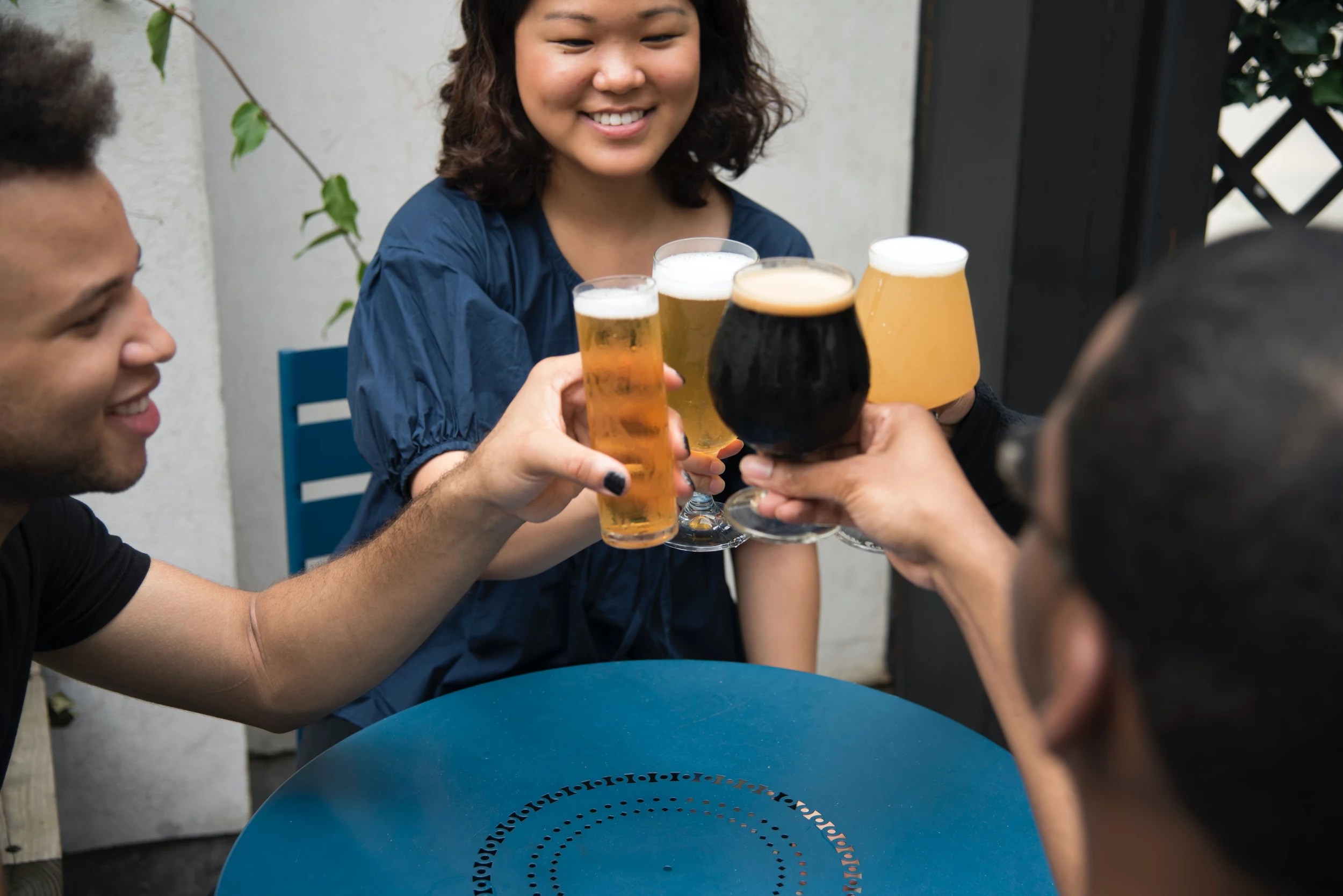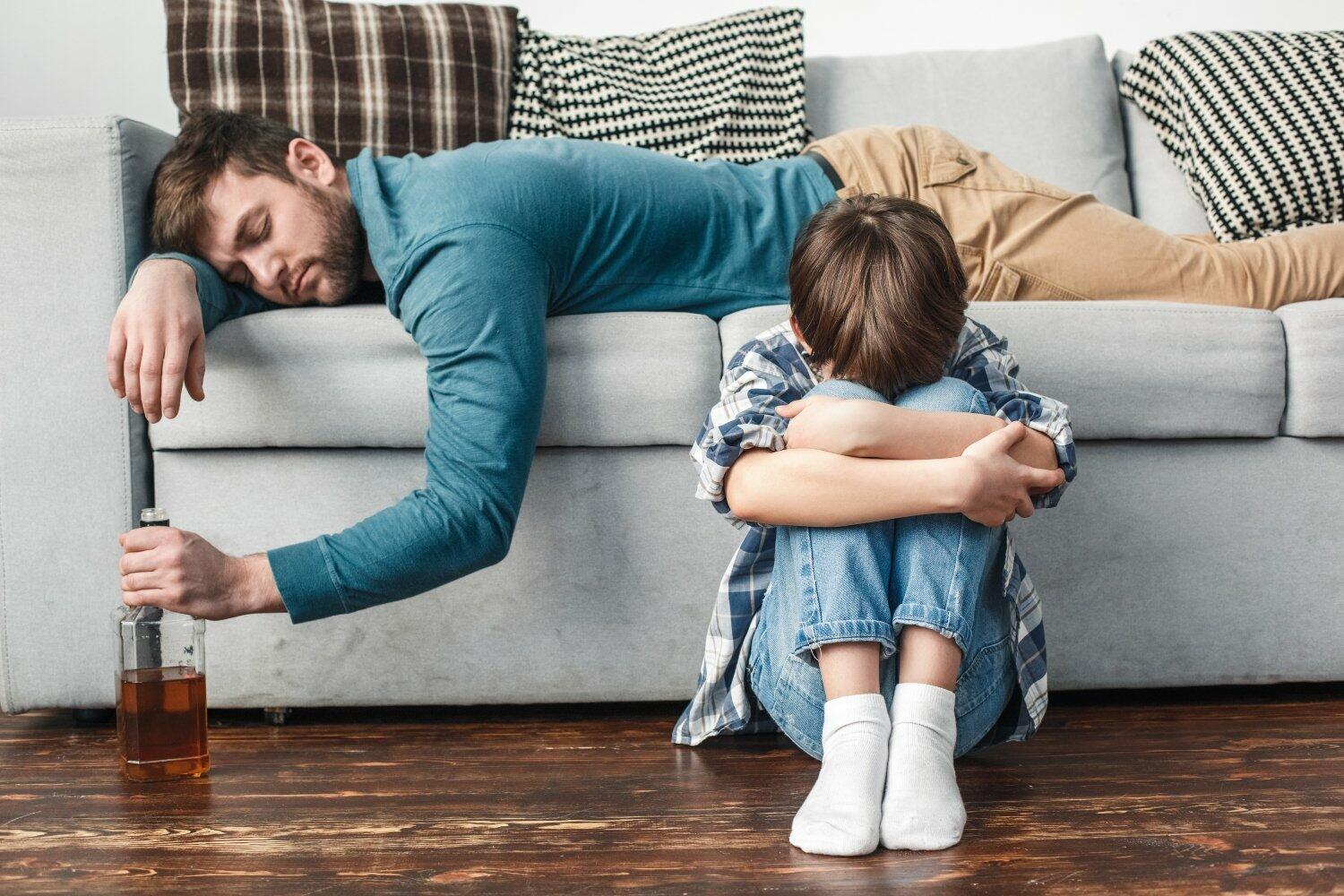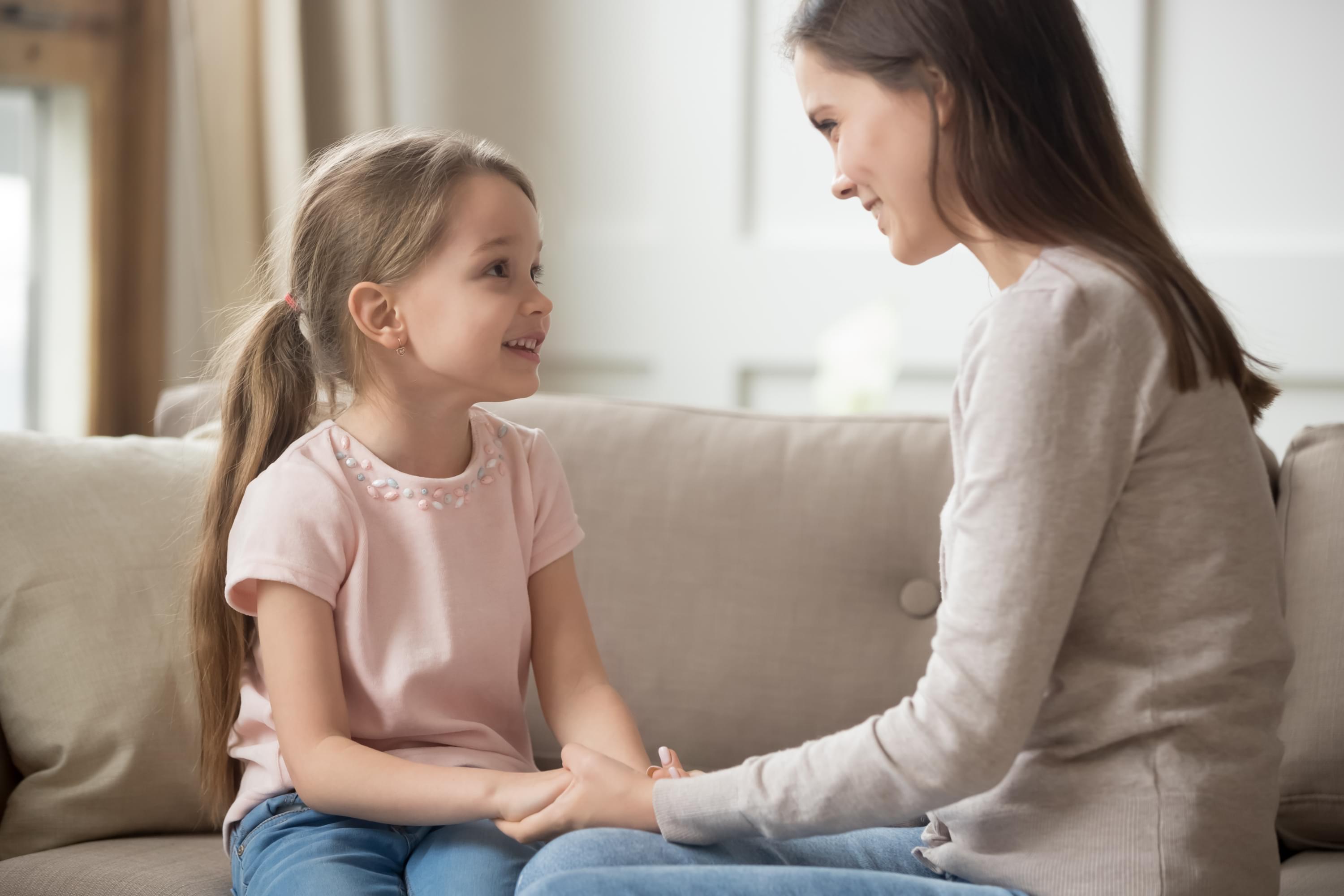Can Parents Give Their Child Alcohol In Hawaii is an intriguing question that explores legal parental responsibilities and the implications of underage alcohol consumption. In Hawaii, as in many other jurisdictions, laws govern the provision of alcohol to minors, and parents must adhere to these regulations to avoid legal consequences.
Understanding the legal framework surrounding underage drinking is crucial for ensuring the safety and well-being of children. Moreover, recognizing the potential risks associated with early alcohol use can help parents make informed decisions about their children's alcohol consumption. This article delves into the legal provisions, consequences, and responsible parenting practices related to underage alcohol consumption in Hawaii.
We will examine the specific laws and regulations governing the provision of alcohol to minors, explore the potential legal ramifications for parents who violate these laws, and discuss the importance of responsible parenting in preventing underage drinking.
Can Parents Give Their Child Alcohol In Hawaii
Addressing the question of whether parents can give their child alcohol in Hawaii requires an exploration of the legal and social dimensions surrounding underage drinking. Several key aspects shape the discussion:
- Legal age limit: Hawaii law prohibits the sale or furnishing of alcohol to individuals under 21.
- Parental responsibility: Parents who knowingly allow minors to consume alcohol on their property may face legal consequences.
- Social stigma: Underage drinking is widely discouraged due to its potential health risks and societal impact.
- Cultural norms: Hawaii's diverse population may have varying attitudes and traditions regarding underage alcohol consumption.
- Enforcement: Law enforcement agencies play a role in preventing and penalizing underage drinking.
- Education and prevention: Schools and community organizations provide education and resources to discourage underage alcohol use.
- Risk factors: Certain factors, such as family history and peer pressure, can increase the likelihood of underage drinking.
- Consequences: Underage drinking can lead to legal repercussions, health issues, and social problems.
- Parental monitoring: Effective parental monitoring can help prevent underage drinking.
- Open communication: Parents should have open and honest conversations with their children about alcohol.
Understanding these key aspects is crucial for parents, educators, and policymakers seeking to address underage drinking in Hawaii. By acknowledging the legal, social, and cultural factors involved, we can work together to create a supportive environment that discourages underage alcohol consumption and promotes healthy decision-making among our youth.
Legal age limit
In the context of "Can Parents Give Their Child Alcohol In Hawaii", the legal age limit established by Hawaii law serves as a crucial element shaping parental responsibilities and societal norms surrounding underage drinking. This prohibition aims to protect the health and well-being of minors, acknowledging the potential risks associated with alcohol consumption during adolescence.
- Age Restriction: Hawaii law clearly defines the legal age for purchasing, possessing, and consuming alcohol as 21 years old. This restriction applies to all individuals, including minors, and is strictly enforced by law enforcement agencies.
- Parental Liability: Parents and guardians who knowingly allow or provide alcohol to individuals under 21 can face legal consequences, including fines, imprisonment, and loss of child custody.
- Social Responsibility: The legal age limit reflects a societal consensus that underage drinking is a serious issue that requires collective action from parents, educators, and the community to prevent and address.
- Health Considerations: The legal age limit aligns with scientific evidence indicating that alcohol consumption during adolescence can have detrimental effects on brain development, physical health, and mental well-being.
Understanding and adhering to the legal age limit are essential for parents in Hawaii. It reinforces the importance of responsible parenting, discourages underage drinking, and contributes to a safer and healthier environment for our youth.
Parental responsibility
In the context of "Can Parents Give Their Child Alcohol In Hawaii", parental responsibility plays a crucial role. Parents who knowingly allow minors to consume alcohol on their property may face legal consequences, underscoring the importance of responsible parenting and adherence to the law.
- Duty of Supervision: Parents have a legal duty to supervise their children and prevent them from engaging in illegal activities, including underage drinking. Allowing minors to consume alcohol on their property constitutes a breach of this duty.
- Civil Liability: Parents may be held civilly liable for injuries or damages caused by minors who consume alcohol on their property. This liability can extend to third parties, such as victims of drunk driving accidents.
- Criminal Charges: In some cases, parents who knowingly allow underage drinking on their property may face criminal charges, such as contributing to the delinquency of a minor or endangering the welfare of a child.
- Loss of Custody: In extreme cases, parents who repeatedly or flagrantly violate underage drinking laws may face the loss of child custody.
Understanding and fulfilling parental responsibilities regarding underage drinking is essential for parents in Hawaii. By adhering to the law and providing proper supervision, parents can help prevent the harmful consequences of underage alcohol consumption and foster a safe and healthy environment for their children.
Social stigma
In the context of "Can Parents Give Their Child Alcohol In Hawaii", social stigma plays a significant role in shaping attitudes and behaviors surrounding underage drinking. The widespread disapproval of underage alcohol consumption stems from concerns about its potential health risks and societal impact, creating a social norm that discourages such.
- Health Concerns: Underage drinking is associated with a range of health risks, including impaired brain development, increased risk of accidents, and alcohol dependence. These concerns contribute to the social stigma against underage drinking, as parents and society prioritize the health and well-being of young people.
- Legal Consequences: Underage drinking is illegal in Hawaii, and both minors and parents who provide alcohol to minors can face legal consequences. The social stigma associated with underage drinking reinforces the legal prohibition, making it less socially acceptable to engage in such.
- Peer Pressure: Social stigma can create peer pressure against underage drinking. Friends and classmates who disapprove of underage drinking can influence individuals to conform to social norms and avoid engaging in such.
- Parental Influence: Parents play a crucial role in shaping their children's attitudes and behaviors towards alcohol. Parents who convey a negative attitude towards underage drinking and provide clear boundaries can help reduce the likelihood of their children engaging in such.
The social stigma surrounding underage drinking is a powerful force in deterring young people from engaging in this behavior. It reinforces legal prohibitions, creates peer pressure against underage drinking, and highlights the importance of parental influence. Understanding and addressing the social stigma associated with underage drinking is essential for parents, educators, and policymakers seeking to prevent underage drinking and promote healthy decision-making among youth.
Cultural norms
Within the context of "Can Parents Give Their Child Alcohol In Hawaii," cultural norms significantly influence societal attitudes and practices surrounding underage drinking. Hawaii's diverse population, comprising various ethnicities and cultural backgrounds, may have varying perspectives and traditions regarding alcohol consumption by minors.
- Parental Beliefs and Values: Parents' cultural beliefs and values shape their attitudes towards underage drinking. Some cultures may have more relaxed attitudes towards underage alcohol use within family settings, while others may strictly prohibit it.
- Religious Influences: Religious beliefs and practices can impact attitudes towards alcohol consumption. Certain religions may forbid alcohol use altogether, while others may allow moderate consumption within cultural or religious contexts.
- Social Customs and Traditions: Cultural norms and traditions influence how underage drinking is perceived and practiced within certain communities. In some cultures, underage drinking may be seen as a rite of passage, while in others, it is strongly discouraged.
- Peer Influences: Peer groups and social circles can influence underage drinking behaviors. In cultures where underage drinking is more prevalent, peer pressure may encourage young people to engage in such activities.
Understanding the diverse cultural norms surrounding underage alcohol consumption in Hawaii is essential for parents, educators, and policymakers. By acknowledging and addressing these cultural nuances, we can develop more effective strategies to prevent underage drinking, promote responsible parenting, and foster healthy decision-making among youth.
Enforcement
In the context of "Can Parents Give Their Child Alcohol In Hawaii", law enforcement plays a critical role in deterring and punishing underage drinking. Enforcement efforts by law enforcement agencies are closely linked to parental responsibilities and the prevention of underage alcohol consumption.
Firstly, strict enforcement of underage drinking laws serves as a deterrent against parents providing alcohol to their children. The fear of legal consequences, including fines, imprisonment, and loss of child custody, can motivate parents to adhere to the legal age limit and refrain from supplying alcohol to minors.
Secondly, law enforcement agencies actively conduct compliance checks at establishments that sell alcohol. By enforcing the "21 and over" rule, law enforcement helps prevent the sale of alcohol to minors. Additionally, undercover operations can identify adults who illegally purchase alcohol for underage individuals, leading to arrests and further deterrence.
Thirdly, law enforcement plays a crucial role in responding to underage drinking incidents. Officers may respond to reports of underage parties or gatherings where alcohol is present. By confiscating alcohol, issuing citations, or making arrests, law enforcement helps to disrupt underage drinking activities and hold both minors and adults accountable for violations.
The enforcement efforts of law enforcement agencies are essential in preventing underage drinking and supporting parents in fulfilling their responsibilities. By deterring adults from providing alcohol to minors, enforcing the legal age limit, and responding to underage drinking incidents, law enforcement plays a critical role in creating a safer environment for youth and promoting responsible parenting practices.
Education and prevention
Within the broader context of "Can Parents Give Their Child Alcohol In Hawaii," education and prevention play a vital role in discouraging underage alcohol use. Schools and community organizations serve as important avenues for providing comprehensive education, resources, and support to promote responsible decision-making among youth.
- School-Based Programs: Many schools implement evidence-based prevention programs that educate students about the risks associated with underage drinking, develop refusal skills, and foster healthy decision-making. These programs often involve interactive activities, guest speakers, and peer-to-peer support.
- Community Outreach: Community organizations collaborate with schools and parents to provide support and resources to prevent underage drinking. This may include hosting community events, offering counseling services, and distributing educational materials to families.
- Parent Education: Schools and community organizations offer educational programs specifically designed for parents to enhance their knowledge about underage drinking, risk factors, and effective parenting strategies. These programs empower parents to communicate effectively with their children and establish clear boundaries regarding alcohol use.
- Peer Support Networks: Schools and community organizations facilitate peer support networks that provide a safe space for youth to discuss concerns, share experiences, and develop positive social norms that discourage underage drinking.
Education and prevention efforts through schools and community organizations complement parental responsibilities and law enforcement measures in creating a comprehensive approach to preventing underage drinking. By equipping youth with knowledge, skills, and support, we empower them to make informed decisions and avoid the harmful consequences of alcohol misuse.
Risk factors
The connection between risk factors for underage drinking and the question of whether parents can give their child alcohol in Hawaii lies in the influence these factors have on parental decision-making and the overall environment in which underage drinking occurs. Understanding these risk factors is critical for parents and policymakers alike as they strive to prevent underage drinking and promote responsible alcohol use.
One significant risk factor is family history. Studies have shown that children with a family history of alcohol abuse are more likely to engage in underage drinking themselves. This increased risk may be due to genetic factors, learned behaviors, or a combination of both. Parents with a history of alcohol problems may unknowingly create an environment that condones or even encourages underage drinking, making it more likely that their children will experiment with alcohol at a young age.
Another key risk factor is peer pressure. Adolescents who have friends who drink alcohol are more likely to drink themselves. This is because peer groups can influence behavior, and individuals may feel pressured to conform to the norms of their social circle. In environments where underage drinking is common, it can become normalized, making it more difficult for youth to resist peer pressure to drink.
The practical application of this understanding is twofold. Firstly, parents should be aware of the risk factors that can increase the likelihood of underage drinking. By understanding these factors, parents can take steps to mitigate their impact, such as talking to their children about the dangers of alcohol, setting clear rules and expectations, and monitoring their children's activities.
Consequences
The consequences of underage drinking are a crucial consideration within the question of whether parents can give their child alcohol in Hawaii. The legal, health, and social repercussions associated with underage drinking underscore the importance of responsible parenting and highlight the need for effective prevention and intervention strategies.
Underage drinking can lead to a range of legal repercussions, including fines, imprisonment, and driver's license suspension. These consequences serve as a deterrent against underage drinking and hold both minors and adults accountable for violations of the law. Parents who knowingly provide alcohol to minors may face legal charges, reinforcing their responsibility to prevent underage drinking.
Moreover, underage drinking poses significant health risks. Alcohol consumption during adolescence can impair brain development, increase the likelihood of accidents and injuries, and contribute to the development of alcohol dependence later in life. The health consequences of underage drinking can be severe and long-lasting, emphasizing the need for parents to educate their children about the dangers of alcohol and to discourage underage drinking.
In addition to legal and health consequences, underage drinking can also lead to social problems. Youth who engage in underage drinking are more likely to experience academic difficulties, relationship problems, and involvement in risky behaviors. Underage drinking can also damage reputations and limit future opportunities. By understanding the potential consequences of underage drinking, parents can make informed decisions and take proactive steps to prevent their children from engaging in this harmful behavior.
Parental monitoring
Within the context of "Can Parents Give Their Child Alcohol In Hawaii," parental monitoring plays a pivotal role in preventing underage drinking. Effective parental monitoring involves ongoing observation, communication, and involvement in a child's life, enabling parents to detect potential risk factors and intervene appropriately.
- Open communication: Regular conversations about alcohol use, risks, and expectations foster trust and allow parents to address misconceptions or concerns their children may have.
- Limit unsupervised activities: Setting boundaries and monitoring children's whereabouts, especially during high-risk times, can reduce opportunities for unsupervised alcohol consumption.
- Know your child's friends: Encouraging children to introduce their friends and understanding their social circle can provide insights into potential peer influences.
- Monitor social media: While respecting privacy, parents should be aware of their children's online activities, as social media can facilitate access to alcohol and underage drinking events.
Effective parental monitoring empowers parents to create a supportive and protective environment for their children, reducing the likelihood of underage alcohol consumption. By setting clear expectations, fostering open communication, and staying informed about their children's activities, parents can help prevent the harmful consequences associated with underage drinking.
Open communication
Within the context of "Can Parents Give Their Child Alcohol In Hawaii," open communication plays a crucial role in preventing underage drinking and promoting responsible alcohol use. Honest and non-judgmental conversations between parents and children about alcohol can significantly reduce the likelihood of underage drinking and its associated risks.
By fostering open communication, parents can educate their children about the dangers of underage drinking, including the legal consequences, health risks, and social problems. They can also discuss family values, expectations, and rules regarding alcohol use, helping children develop a clear understanding of appropriate behavior.
Additionally, open communication allows parents to address misconceptions or peer pressure that may influence their children's attitudes and behaviors towards alcohol. By providing accurate information and support, parents can help their children make informed decisions and resist negative influences.
In practice, open communication about alcohol should begin early, even before children reach adolescence. Parents should create a safe and supportive environment where children feel comfortable asking questions and discussing their thoughts and feelings about alcohol. By maintaining open dialogue throughout childhood and adolescence, parents can help their children develop healthy attitudes towards alcohol and make responsible choices.
In conclusion, exploring the question of "Can Parents Give Their Child Alcohol In Hawaii" has illuminated the complex interplay between parental responsibilities, legal frameworks, social norms, and the well-being of youth. Understanding the legal age limit, parental liability, social stigma, and cultural influences on underage drinking is essential for responsible parenting. Furthermore, effective enforcement, education, prevention strategies, and open communication are crucial for preventing underage alcohol consumption and promoting healthy decision-making among minors.
As we navigate the challenges surrounding underage drinking, let us remember the profound impact that our actions and decisions have on the lives of our children. By creating a supportive and informed environment, we can empower youth to make responsible choices and safeguard their health and future prospects. The well-being of our communities and the safety of our children depend on our collective efforts to prevent underage drinking and promote responsible alcohol use.
Meet Thaya Uso: Exploring The Life Of Jey Uso's Wife
Lodi, CA Sales Tax: A Comprehensive Guide For Informed Spending
Unveiling Gretchen Rossi's Net Worth: How Much Wealth Does She Possess?

Can A Parent Give Their Child Alcohol In Texas? Recovery Ranger

As a parent, it can feel like you are continually making mistakes and

How an Alcoholic Parent Affects Their Children Tikvah Lake Florida
![Can You Give Your Child Alcohol In New York? [The Right Answer] 2022](https://cdn.statically.io/img/i2.wp.com/www.travelizta.com/wp-content/uploads/2022/09/can-you-give-your-child-alcohol-in-new-york.jpg)
Can You Give Your Child Alcohol In New York? [The Right Answer] 2022

aGreatLife 4 Styles of Parenting and How Each Affects a Child Parenting
ncG1vNJzZmiblaG6r3rApqpsZpSetKrAwKWmnJ2Ro8CxrcKeqmebn6J8pK3NZqeaqpWjwbR5xqKtnmWknbKqvoycn6KklGKura%2FOoaalZZmjeqmt1pqgomaYqbqt